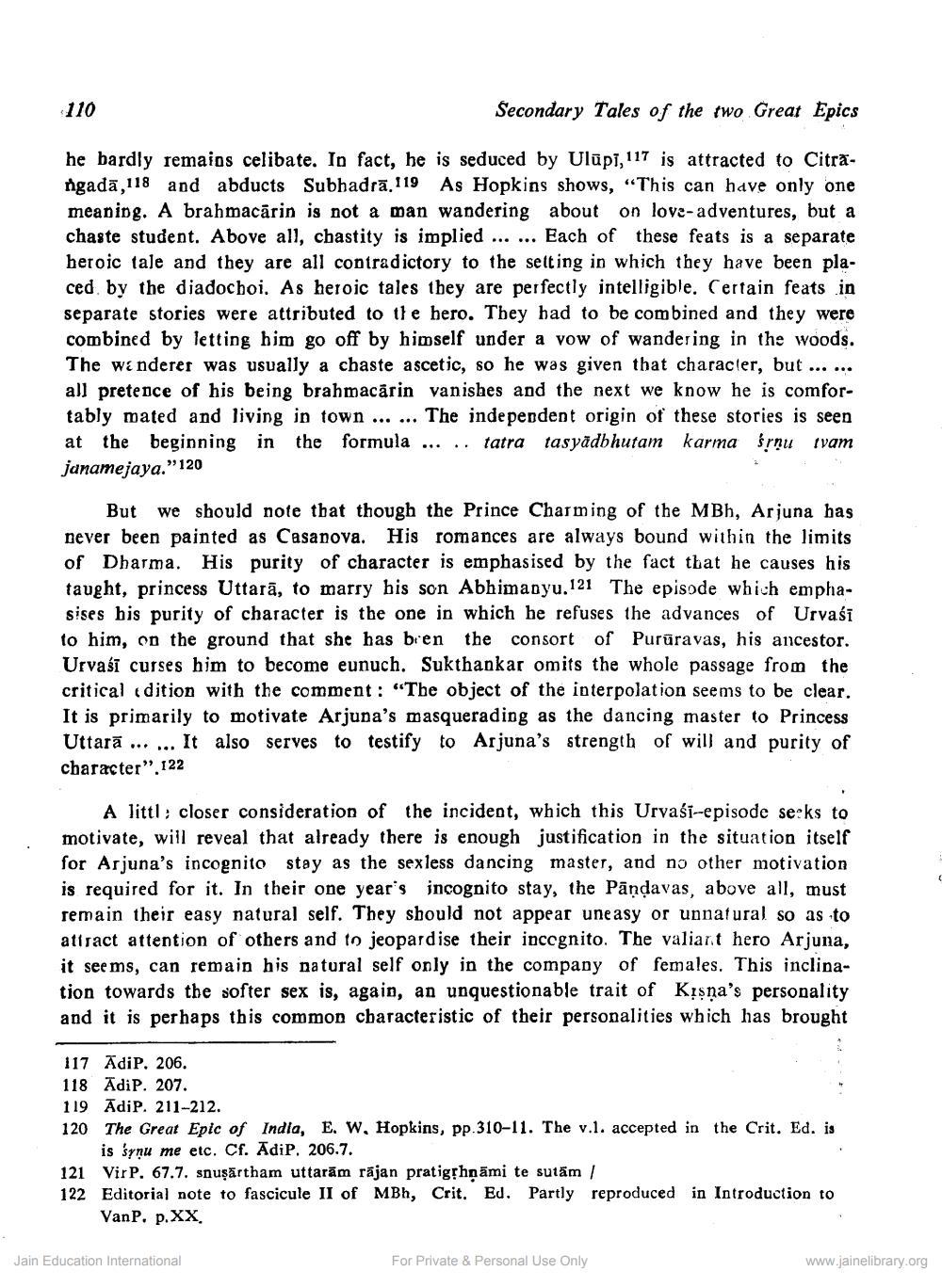________________
110
Secondary Tales of the two Great Epics
he bardly remaios celibate. In fact, he is seduced by Ulūpi, 117 is attracted to Citrangadā, 118 and abducts Subhadrā. 119 As Hopkins shows, "This can have only one meaning. A brahmacārin is not a man wandering about on love-adventures, but a chaste student. Above all, chastity is implied ... ... Each of these feats is a separate heroic tale and they are all contradictory to the setting in which they have been placed by the diadochoi. As heroic tales they are perfectly intelligible. Certain feats in separate stories were attributed to the hero. They had to be combined and they were combined by letting him go off by himself under a vow of wandering in the woods. The wanderer was usually a chaste ascetic, so he was given that character, but ... ... all pretence of his being brahmacärin vanishes and the next we know he is comfortably mated and living in town ... ... The independent origin of these stories is seen at the beginning in the formula ..... tatra tasyadbhutam karma srnu tvam janamejaya."120
But we should note that though the Prince Charming of the MBh, Arjuna has never been painted as Casanova. His romances are always bound within the limits of Dharma. His purity of character is emphasised by the fact that he causes his taught, princess Uttarā, to marry his son Abhimanyu.121 The episode which emphasises his purity of character is the one in which he refuses the advances of Urvašī to him, on the ground that she has bren the consort of Purūravas, his ancestor. Urvasi curses him to become eunuch. Sukthankar omits the whole passage from the critical edition with the comment: "The object of the interpolation seems to be clear. It is primarily to motivate Arjuna's masquerading as the dancing master to Princess Uttarā ... ... It also serves to testify to Arjuna's strength of will and purity of character".122
A littl: closer consideration of the incident, which this Urvasi-episode seks to motivate, will reveal that already there is enough justification in the situation itself for Arjuna's incognito stay as the sexless dancing master, and no other motivation is required for it. In their one year's incognito stay, the Pāņdavas, above all, must remain their easy natural self. They should not appear uneasy or unnatural so as to attract attention of others and to jeopardise their incognito. The valiant hero Arjuna, it seems, can remain his natural self only in the company of females. This inclination towards the softer sex is, again, an unquestionable trait of Kısna's personality and it is perhaps this common characteristic of their personalities which has brought
117 AdiP. 206. 118 AdiP. 207. 119 AdiP. 211-212. 120 The Great Epic of India, E. W, Hopkins, pp.310–11. The v.l. accepted in the Crit. Ed. is
is synu me etc. Cf. AdiP. 206.7. 121 Vir P. 67.7. snusartham uttarām rājan pratigrhnāmi te sutam/ 122 Editorial note to fascicule II of MBh, Crit. Ed. Partly reproduced in Introduction to
VanP. p. XX
Jain Education International
For Private & Personal Use Only
www.jainelibrary.org




